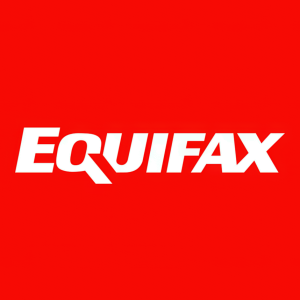Welcome to our dedicated page for Equifax news (Ticker: EFX), a resource for investors and traders seeking the latest updates and insights on Equifax stock.
Equifax Inc (NYSE: EFX) is a global leader in consumer credit reporting and data analytics, providing essential insights for financial institutions and businesses. This dedicated news hub offers investors and professionals centralized access to official updates and market-moving developments.
Find carefully curated press releases covering EFX's financial performance, technology innovations, and strategic partnerships. Our collection includes earnings announcements, regulatory updates, and progress reports on key initiatives like cloud migration and AI-driven product development.
Key areas of coverage include:
• Quarterly financial results
• Data security enhancements
• Workforce solutions expansion
• Global market initiatives
Bookmark this page for streamlined tracking of Equifax's evolving position in the credit reporting industry. Check regularly for authoritative updates that matter to stakeholders in financial services and data analytics sectors.
Equifax (NYSE: EFX) has appointed Lena Bourgeois as the new automotive general manager. With nearly a decade at Equifax, Bourgeois has led the automotive Enterprise Alliances, enhancing the company's partner network. She aims to strengthen Equifax's role in the digital automotive space amidst economic challenges. Her extensive experience includes leadership positions in data and technology sectors, indicating a focus on leveraging data analytics to drive customer satisfaction and business growth in the automotive industry.
Equifax (NYSE: EFX) has declared a quarterly dividend of $0.39 per share, payable on December 15, 2020, to shareholders of record by November 24, 2020. This marks over 100 consecutive years of dividend payments, underscoring the company's commitment to returning value to its shareholders. Equifax continues to play a vital role in the global economy through its advanced data, analytics, and technology solutions, operating in 25 countries worldwide.
Equifax, on October 29, 2020, launched its innovative Cashflow Insights solution aimed at enhancing credit access, particularly during the COVID-19 pandemic. This new offering allows consumers to share bank account data from over 7,700 U.S. financial institutions, enabling lenders to better assess financial profiles. The initiative could potentially halve the 32 million credit unscorable U.S. consumers and increase the number of credit-worthy individuals by 5 million. The solution facilitates a more inclusive economy by providing timely credit opportunities based on real-time financial data.
Equifax and Urjanet have been awarded the Most Promising Partnership title by LendIt Fintech for their collaboration to enhance financial profiles using utility and telecom payment histories. This recognition highlights their innovative approach during the economic challenges posed by the COVID-19 pandemic. Equifax estimates that around 5.5 million U.S. consumers could improve their credit scores by utilizing alternative data sources, helping lenders assess creditworthiness more effectively.
The latest Consumer Credit Confidence Survey from Equifax reveals a positive shift in consumer sentiment over the past six months, with 33% of respondents feeling optimistic about their finances, compared to 27% in April. Anxiety about financial situations has decreased from 34% to 24%. Notably, 65% now rate their financial stability as high. As the pandemic's effects are managed, fewer consumers report stress around finances and more are focusing on savings and investments. Importantly, 69% believe the U.S. presidential election outcome will influence their financial decisions.
Equifax reported strong financial results for Q3 2020, achieving over $1 billion in revenue for the first time, totaling $1,068.3 million, a 22% increase from Q3 2019. Net income surged 177% to $224.2 million, with diluted EPS rising to $1.82 from $0.66. The US Information Services and Workforce Solutions segments both experienced significant growth, with Workforce Solutions revenue up 57%. However, International segment revenue fell 5%. The company continues to invest in cloud technology and product innovation.
Equifax (NYSE: EFX) has launched the first-ever I-9 management service tailored for e-commerce, targeting small and midsize businesses (SMBs). This service, which includes the I-9 Starter and I-9 Standard packages, aims to simplify compliance with Form I-9 requirements, which can be complex and prone to costly mistakes. The offering features easy setup, guided navigation, and audit readiness, helping businesses streamline their onboarding processes. The new subscription-based model supports compliance and enhances user experience, aligning with the trend of digital transformation in business.
Equifax (NYSE: EFX) has appointed Sunil Bindal as Senior Vice President of Corporate Development, effective immediately. Bindal, who reports to CEO Mark Begor, brings extensive experience in mergers and acquisitions, previously serving as SVP at Total System Services. His notable achievements include playing a key role in a $60 billion merger with Global Payments. Bindal's leadership will enhance Equifax's strategy focusing on leveraging a $1.25 billion cloud data transformation for growth, positioning the company for opportunistic acquisitions.
Equifax Inc. (NYSE: EFX) will release its third-quarter financial results on October 21, 2020, after market close. The company will also host a conference call on October 22, 2020, at 8:30 AM ET to discuss the results. Investors can access related presentation materials on its investor relations website starting at 6:30 AM ET on the same day. Equifax emphasizes its role in providing data and analytics to help various sectors make informed decisions, highlighting its global reach in 25 countries.
Equifax (NYSE: EFX) announced a conference call scheduled for September 8, 2020, at 4:30 PM ET, where CEO Mark Begor and CFO John Gamble will discuss market and business revenue trends. Investors can access related presentation materials at investor.equifax.com prior to the call. The call will be available for replay on the same site the following day, providing insights into the company's financial landscape.


